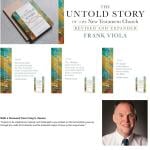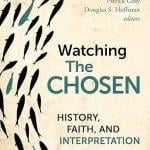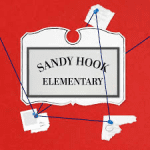I just recently finished teaching a four-part series on the parable of a father and his two sons. Many people refer to it as the parable of the prodigal son. The word “prodigal” isn’t commonly used in everyday vocabulary. It means “spending financial resources recklessly, wastefully, and extravagantly.” A prodigal is usually someone who acts without thinking or caring about the consequences of their actions.
This is an apt description of the younger son in the parable. He approaches his father—who appears to be a wealthy man—and asks for his inheritance. Surprisingly, the father gives it to him. The son then takes his financial resources and moves to a distant land.
The younger son leaves home with a strong sense of freedom. He had a great deal of money and moved far away, hoping to live without his father’s interference. He was morally free. His new lifestyle is described as “wild living.” It was only a matter of time before he lost everything—and found himself broke, alone, and homeless.
His approach to experiencing the good life and finding happiness eventually broke down. A life without restraints lead to self-destruction. The same is true for many people today who take this approach to life. People’s lives are breaking down. Suicide rates and levels of depression are at an all-time high. Social scientists tell us we are a deeply unhappy culture.
I believe the modern approach to freedom and happiness isn’t working because it ultimately breaks down.
The popular author, Os Guiness says, “Freedom is not to be able to make whatever choice your heart desires. It is making the right choice, the good choice, the wise choice. When everything is permissible no one is truly free.” I might add that this is generally the path that leads to self-destruction.
It is not surprising that God is the one who provides the path to true freedom. In Psalm 119:45, King David says, “I will walk about in freedom for I have sought your word.” Then James speaks of God’s perfect law that gives us freedom (James 1:25). Most people would respond by asking, “How does God’s word lead to freedom?” It would seem that God’s word leads to all types of restrictions.
What we all need to understand is that God’s word provides us with boundaries to live within. These boundaries are for our own good and our protection. However, within these boundaries we are free to choose the life we desire to live.
There is a parable I love to tell about a wealthy man who has bought 500 acres in a beautiful part of Montana. He has built a stunning home on the property. Behind their home are rolling meadows with a breathtaking view of distant mountains. The man and his wife have four children and ten grandchildren ranging from ages five to fourteen.
The man and his wife decide to create an elaborate playground where they can host family reunions that their children and grandchildren will be eager to attend. So they build a swimming pool with a slide, a pickleball court, a tennis court, a basketball court, putt-putt golf course, and a large jungle gym. However, they realize there is a problem. Sometimes wild animals wander onto their property. They have seen coyotes, wolves, and bears come into their backyard area in search of food.
So they build around this play area a strong, high fence that will prevent these animals from coming onto their property. When the entire family comes to Montana for their first family reunion the man gathers everyone to the back of the property and tells them, “I have created this for your enjoyment and to provide a place for you to be with one another. I have only one requirement and that is don’t ever go outside of this fenced area, because on the other side of this fence are forces that can do you great harm.”
This is what God has done for us. He has created this world for us and as Paul tells us He “richly supplies us with all things to enjoy.” The only requirement is that we stay within the boundaries of His word. This is true freedom.
Richard E Simmons III is the founder and Executive Director of The Center for Executive Leadership and a best-selling author.













